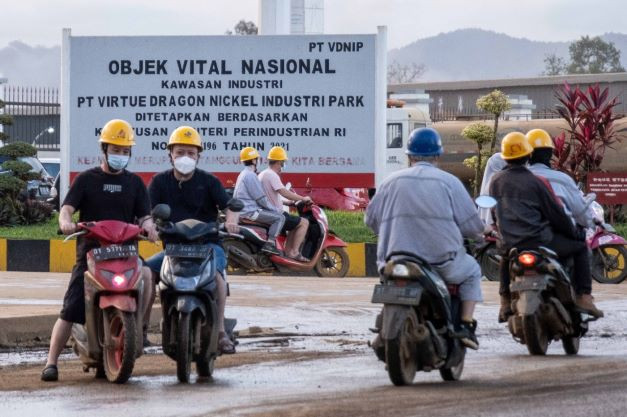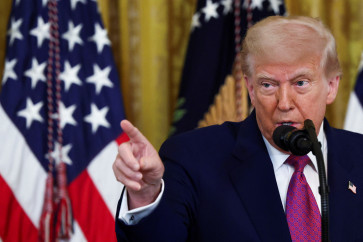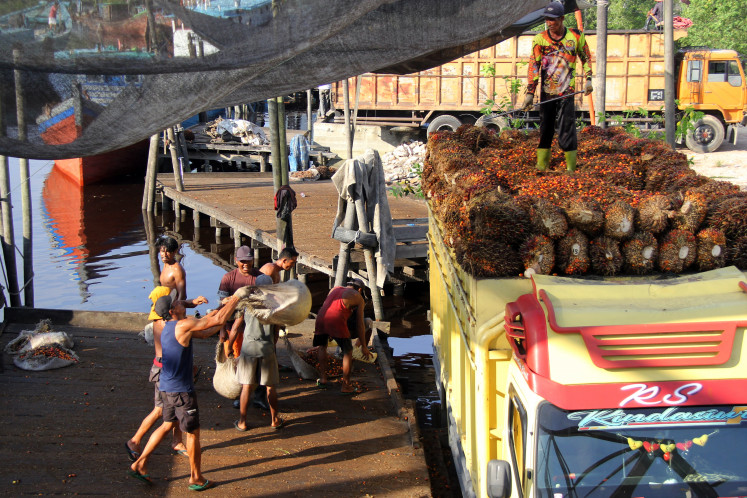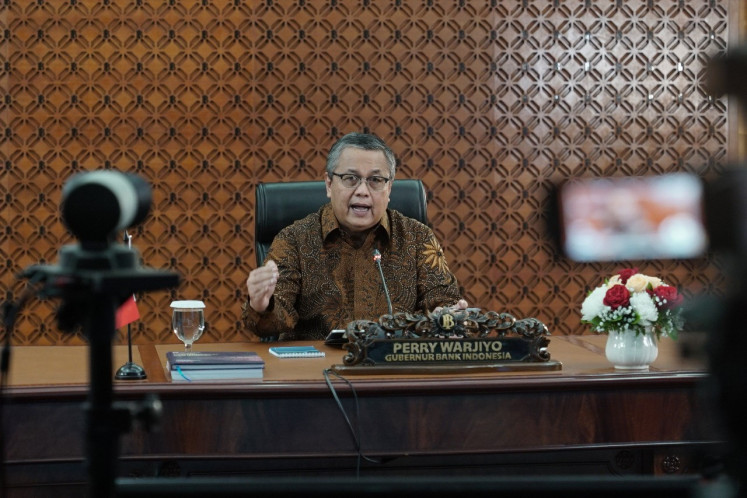Popular Reads
Top Results
Can't find what you're looking for?
View all search resultsPopular Reads
Top Results
Can't find what you're looking for?
View all search resultsMineral export ban: A revival of Prebisch-Singer and Sukarno idea?
The less-developed countries' lack of savings results from their low level of GDP, while their lack of forex reserves is due to their weaknesses in international trade.
Change text size
Gift Premium Articles
to Anyone
M
any had criticized the unbalanced results of the old international-trade system. One of the criticisms in the past came from Raul Prebisch in 1950, supported by Hans Singer on the same issue.
Based on the export statistics of the United Kingdom, Prebisch criticized the secular tendency of the terms of trade, moving against the primary products in favor of manufactured and capital goods. Such a trend entailed a necessity to export a large volume of primary products in order to import a certain amount of manufactured goods, especially capital goods.
It is a necessity for developing countries to import foreign capital goods to industrialize their countries. Alas, the development of international trade is handicapping those less-developed countries, making it difficult to catch up with the advanced countries in terms of financing the process.
If the present less-developed countries advance, there would be a higher volume of international trade, raising the export and import volume between countries in the world. But unfortunately, it seems that the present advanced countries are anxious to keep the less-developed countries in their status of underdevelopment.
This is a kind of new colonialism, as the late founding president Sukarno stated in the Bandung Asian-African Conference in 1955.
Prebisch and Singer maintain that the achievement of technological progress in developed countries does not percolate to the less-developed countries. Technology is a means of transforming an economy into an industrialized country, independent of the natural resources it inherits or endows.
Advanced technologies are contained in the latest capital goods, requiring foreign-exchange financing, potentially obtained from international trade. Unfortunately, again, it seems that specialization has been interpreted unfavorably, where the less-developed countries should specialize in raw-material production, while the developed countries specialize in manufactured goods or advanced-technology activities.
Such a presumed attitude triggered a sense of new colonialism in international trade, a sense of discrimination against the proclaimed egalitarian human rights.
Such development in the real sector or international-trade merchandise is accompanied by a parallel process in the global-finance system. The developing countries are advised to borrow the funds from the savings surplus, the advanced countries or international-financial institutions to finance their development. It is so since the less-developed countries lack savings and foreign-exchange reserves. Their lack of savings results from their low level of GDP, while their lack of forex reserves is due to their weaknesses in international trade.
These are all circular processes. One of the results is a high level of indebtedness of many developing countries in foreign exchange, while at the same time they are suffering a continuous deterioration of the terms of trade in international trade. Such a situation again triggers a deterioration of the local currency of the indebted less-developed countries, raising the value of the debt in local currency.
If the presumed attitude in international trade is maintained, it could perpetuate the underdevelopment of the developing countries. Such a trend runs counter the stated objective of the World Trade Organization of raising the living standard of the people of the member countries. Hence any effort to conduct an act of equalization in the field of international trade is aiming to support the proclaimed objective of the WTO itself.
The Handbook of United Nations Conference on Trade and Development (UNCTAD) Statistics 2022 published the world data on the terms of trade for 2021. It was found that the terms of trade improved in almost all geographical regions, except Asia, where they declined by 0.6 percent. Asia experienced a negative development, which could be different from one country to another country within the continent.
The development of the terms of trade coinciding with the disturbing time of COVID-19, which could produce different outcomes than during a normal time, is of course quite suspicious.
The above report, which concludes that there has been an improvement in the terms of trade in all of the geographical regions of the world, except Asia, is contrary to the Prebisch-Singer thesis. The UNCTAD Statistics 2019 showed an almost constant terms of trade for several previous years, including the year of 2019, except for the transitional economies, which experienced an improvement. These data again support the conclusion that there is a significant difference from the years reported by Prebisch-Singer, where there was a secular deterioration in terms of trade.
It must be acknowledged that there has been a significant change in the course of the terms of trade globally. The developing countries have been embarking on the industrialization process. Despite their still-insignificant share of the economy, for sure it has been progressing gradually. Indonesia is also experiencing that development, a process of industrialization like all other countries in the ASEAN region, and China is the most spectacular example of an industrializing country changing from an earlier less-developed one. In 40 years, China has been able to become one of the global economic superpowers.
Now the issue is how to manage this transition within the framework of WTO?
The state of pure raw material versus manufactured exporting countries as in the Prebisch-Singer theory is diminishing. Now is a transitional era to a new balanced stage of a global mixed economy between the raw material and the manufactured goods-exporting countries. Nonetheless, there is a critical situation for some key raw materials, which were before manufactured by developed countries.
The halt of the incoming raw-material imports deteriorates the related countries’ economies significantly. This could be the case with nickel and bauxite from Indonesia. All countries in the world must accept that the pure raw-material exporting countries with a significant volume in the global trade would no longer exist.
Any country which is now still at the stage of operating such a system without its own raw-material source should change their industrial structure by taking this situation into account. It is an error in economic planning. Any country or any nation has a right to industrialize its economy. Denying such a right is against the WTO principles and human rights.
So, let there be an equality of opportunities for all countries all over the world, and let us avoid the sense of a new-colonization climate!
***
The writer is a former associate professor at the School of Economics, the University of Indonesia.










